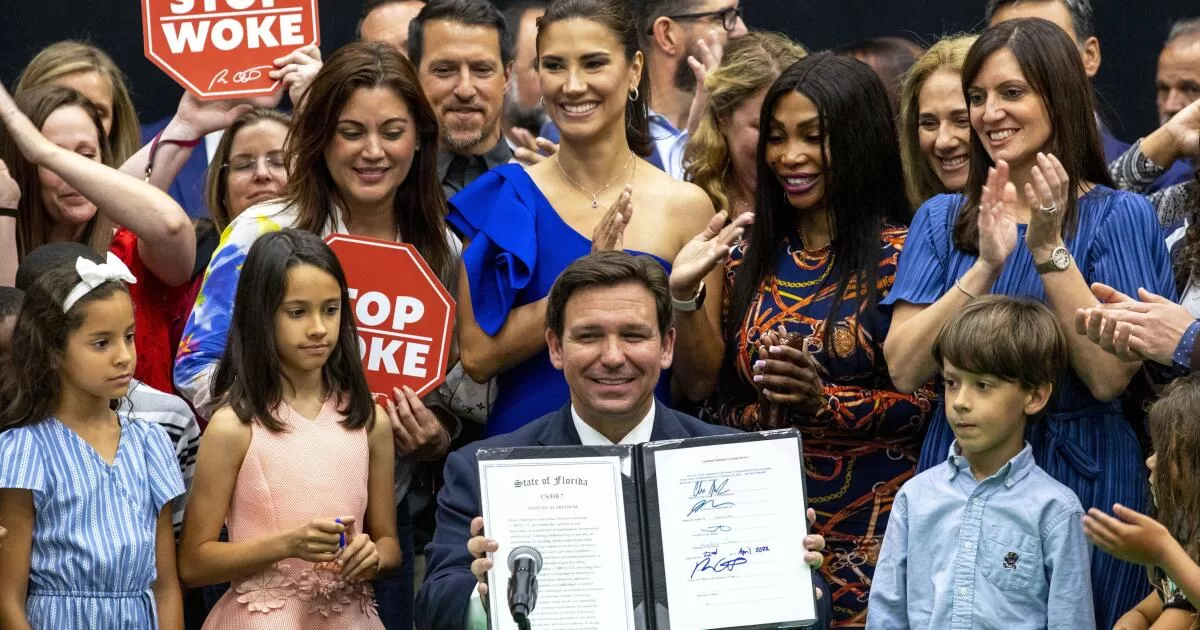About a decade ago, many on the left embraced the word “woke,” a term with roots in African American culture and activism. It originally meant staying awake — that is, “woke” — to the dangers facing the Black community. But in the hands of the broader, and whiter, academic and journalistic left, it soon became a kind of cool catchall for progressive politics, alongside other buzzwords like “intersectionality.”
The combined effects of the Trump presidency, the death of George Floyd and the COVID-19 pandemic pushed wokeness into overdrive. This was the era of “defund the police” and other radical inanities.
The right soon took up the word, using “woke” as a catchall for everything — woke or not, real or not — it hated about the left. The novelty of wokeness as a concept lent an equal edginess, for a time, to anti-wokeness. It’s a familiar tale, really: The same thing happened with “political correctness” in the early ’90s.
Republican politicians declared war on wokeness. Erstwhile presidential candidate and Florida Gov. Ron DeSantis was at the anti-woke vanguard, even pushing the Stop WOKE Act through the state Legislature. It didn’t work out too well for DeSantis or his imitators.
And that’s the point: Both wokeness and anti-wokeness have lost their transgressive edge. Now they’re both kind of “cringe,” as the kids say.
And that is a sign of healing.
One of the worst annoyances of polarized politics is the way the fringes symbiotically feed off each other. Like bootleggers and Baptists both benefiting from blue laws, the extreme left and extreme right need each other to justify their catastrophizing. The worst thing that could happen for Republican House fundraising efforts would be for the “Squad” of far-left members of Congress to be replaced by sensible Democrats. And the last thing the Democratic Congressional Campaign Committee wants is for Marjorie Taylor Greene to be primaried by an intelligent Republican who doesn’t talk about Jewish space lasers.
So is woke over? Probably not. The term might be in terminal decline as anything other than an epithet, but the ideas are going to be around for a while — as will anti-wokeness — because both are just stand-ins for the culture war’s left and right.
But it does seem as if many on the left are starting to realize they went too far. Most Democrats don’t talk about “defunding the police” anymore because it is a wildly unpopular idea, including among Black people. Nor do they use the term “Latinx” as much now that they have learned that it repelled more Latinos than it pleased.
It was recently reported that the Massachusetts Institute of Technology will no longer require applicants for faculty jobs to submit “diversity statements” confirming their support for “diversity, inclusion, and belonging.” University President Sally Kornbuth told UnHerd, “We can build an inclusive environment in many ways, but compelled statements impinge on freedom of expression, and they don’t work.”
A slew of elite schools have reversed course by requiring standardized tests again. Big corporations are paring back their diversity, equity and inclusion, or DEI, departments, which surged under Trump.
And, of course, the explosion of lawlessness and antisemitic rhetoric on elite campuses has been a lesson for academia, the left and Democrats. The country isn’t that into disorder and bigotry. Polls suggest that the public is siding with police more than protesters.
There’s a lesson here for the right too. For a decade, the populist right has been whining about losing every battle in the culture war to rationalize its embrace of radical and authoritarian politics. But the premise is wrong. The right doesn’t always lose — or win — any more than the left does.
Trump and his supporters insist that America can’t survive without him in the White House. William Barr, who was attorney general under Trump, says his former boss is utterly unfit to be president but that he will still vote for him because a second Biden term would amount to “national suicide” because of wokeness or something. Never mind that wokeness surged under Trump and has been receding under Biden.
Obviously, the right and left still have plenty to complain and worry about. The point is that there’s always plenty to complain and worry about. Tides come and go. And people learn, eventually, from their mistakes.
